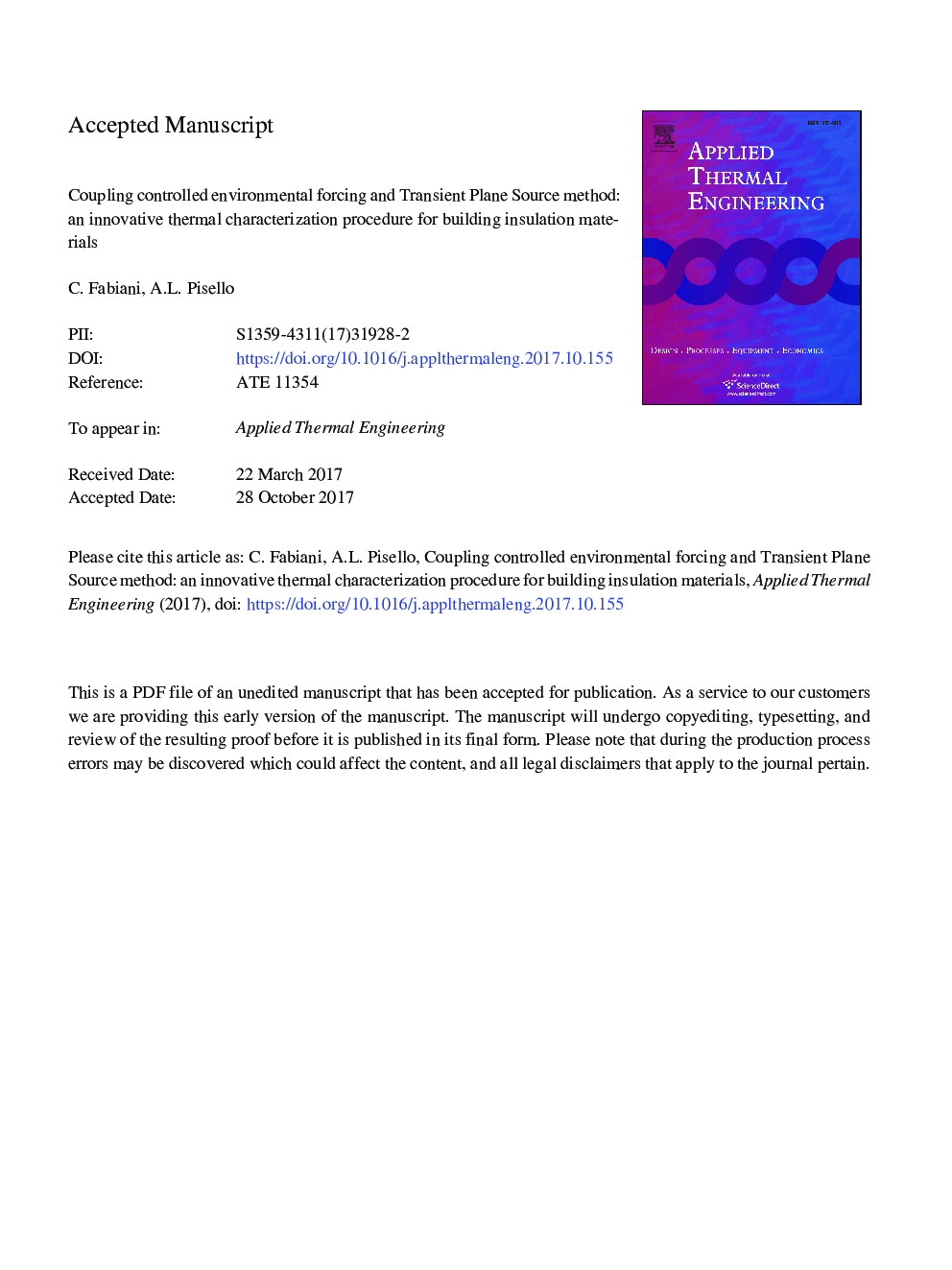| Article ID | Journal | Published Year | Pages | File Type |
|---|---|---|---|---|
| 7046362 | Applied Thermal Engineering | 2018 | 33 Pages |
Abstract
Thermal insulation materials can be considered as an effective strategy to decrease thermal losses through the building envelope. According to international standards, the thermal characterization of such materials is carried out at the mean temperature of 10â¯Â°C in terms of thermal conductivity. However, realistic thermal profiles can significantly detach from such reference value, and consequently, the overall thermal behavior of the building envelope can seriously differ from the designed condition. In other to bridge this gap, any design condition in the range 0-30â¯Â°C is generally evaluated according to acknowledged standards. In this work, environmental forcing and transient plane source method are simultaneously applied to define reliable temperature-dependent profiles in a relatively short timescale for three basic properties of thermal insulation materials, i.e. thermal conductivity, thermal diffusivity and volumetric specific heat. Results show that the proposed methodology can be considered as an effective tool for the realistic thermal characterization of building insulation materials.
Related Topics
Physical Sciences and Engineering
Chemical Engineering
Fluid Flow and Transfer Processes
Authors
C. Fabiani, A.L. Pisello,
